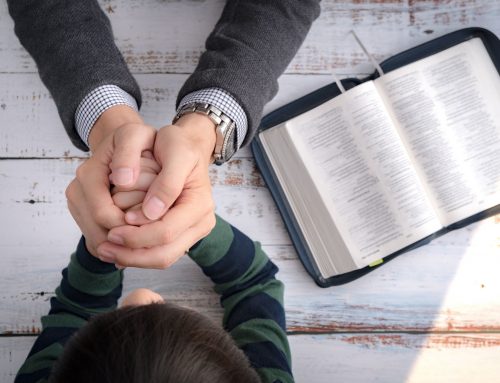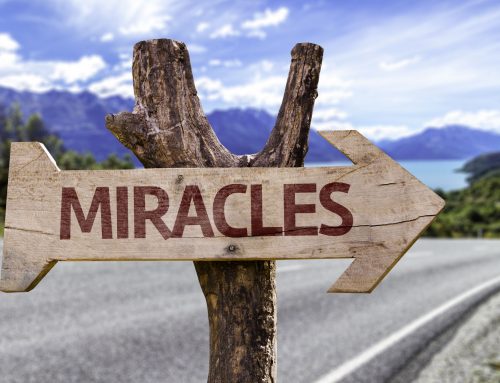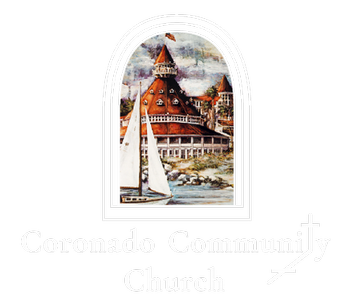Acts 11: 1-18
A Sermon by Pastor Eric Smith
Published On: May 15, 2022
A Sermon by Pastor Eric Smith
Published On: May 15, 2022
During the summer after my freshman year of college I toured with a gospel music group called the Continental Singers. They were fashioned after Up With People, which may be a more familiar name. The group was made up of 30 college age people.
The invitation to participate was a surprise, I had found faith in a new way just months before, but there it was.
We had a 10 day rehearsal camp on a college campus and then we hit the road. The tour took us through the Pacific Northwest, Hawaii, then stops in cities of the Orient: Tokyo, Osaka, Manilla, Singapore, Taipei, and Seoul. It was an amazing adventure.
It was an outreach of faith. We sang and spoke at rallies, on radio and television, and… most importantly… in 90 churches of many denominations. I got a taste of the similarities and differences in congregations. And, as each congregation had a potluck meal for us, I became a self-proclaimed expert in varieties of potato salad.
The experience of the congregations was diverse. They each had their own style. Which brings to mind this version of an old story…
How many Christians does it take to change a light bulb?
- for Presbyterians:
Lights go on and off at predestined times. - for Baptists:
At least 13. One to change the light bulb, and three committees to approve the change and decide who brings the potato salad. - for Charismatics:
Only one. Their hands are already in the air. - for Roman Catholics:
Candles only. - for Episcopalians:
One to call the electrician, and seven to say how much they liked the old one better. - for the Amish:
This question: What is a light bulb? - for Lutherans:
Lutherans don’t believe in change. - And for the Coronado Community Church:
An undetermined number. Whether your light is bright, or dull, or completely out, you are loved in this church– you can choose to be a light bulb, a tulip bulb, or a turnip bulb. We love you no matter what.
But I digress…
While growing up in Coronado, St. Paul’s United Methodist was my religious frame of reference. I knew very little about any other Christian churches. What I learned, during that summer of travel, was that people of faith are quite similar… different denominational groups have eccentricities but are quite similar… and that making music with these other young people was an experience of community in faith in a new way for me. It was a new dynamic in faith. The spirit of it… God’s spirit touched my heart and I felt my place in this world was in full-time Christian service.
It was a new paradigm that led to more fullness of my faith.
Our scripture reading told the story of Peter’s awakening to a greater fullness of his faith.
Let’s unpack the story… it requires some context so hang with me…
The Judaism of that era was dominated by a ritual understanding of purity. There were rules to follow in order to keep one’s-self clean and pure in relation to God.
Most of the religious emphasis was devoted to specific do’s and don’t’s, about how a person became impure and what brought a person back to being pure, once again.
Purity was a form of holiness. There was overlap between purity and holiness.
You couldn’t be holy without observing the practices of purity.
What were the rules? A few examples: bathing… washing… exposure to dead animals or people… exposure to sick people… hanging out with the wrong people… and … dietary laws.
These observances are part of Torah…The Law – 613 commandments (to be precise). These were, for the most part, directed toward health and well-being; observing them made life better. But things went askew over time… the observances became worshipped themselves, rather than serving as aids to living in harmony with God. In comparison, today some Christians embrace proscriptions of the Bible as the unchanging truth of God… even when some of those proscriptions are outworn, irrelevant, and more harmful than good.
When Karen and I lived in Irvine our next door neighbors were Orthodox Jews. Orthodox Jews follow the purity observances of the Law still today.
One of the Biblical commandments is no work on the Sabbath. My neighbor Jacob asked if I would come over on Friday night to turn off the lights in their house. The result of centuries of interpretation was that switching electric lights on or off on the Sabbath is considered work within Orthodox Judaism, and , as a matter of purity, can’t be done. I was invited to be, what they called, a Shabbat Goy … a non-Jew who can do this “work” for them since this observance of the Law doesn’t apply to non-jews. I was happy to turn off their lights for them.
The practices of the purity laws, which Jesus addressed, had, in his opinion, lost proportionality between what-was-important and what-was-not-important. They had to be addressed.
There were many proscriptions attached to eating. They are called kashruth or keeping kosher. For instance, in keeping kosher a Jew is not to eat pork (which means no carnitas)… nor shellfish (lobster, oysters, shrimp and clams).
Now… to the biblical story …
…the apostles and the believers who were in Judea heard that the Gentiles had also accepted the word of God. 2So when Peter went up to Jerusalem, the circumcised believers criticized him, 3saying, “Why did you go to uncircumcised men and eat with them?”
That was a purity violation on two counts.
Peter began to explain it to them…
He had a dream where he saw all kinds of animals… kosher and not kosher… and the voice of God told him to go ahead and eat them.
But Pete said I’m not gonna’ do it… nothing profane or unclean has ever entered my mouth.
God’s voice spoke again… (and this is the important line of the passage)
What God has made clean, you must not call profane.
That was a big deal. It meant that the purity laws were no longer authoritative. It was a new paradigm. God made a new path in faith.
You can imagine that not all of the Jewish followers of Jesus could get behind this. This was big change – everyone’s favorite thing!
Architects and other designers employ a concept called form and function. The idea is that the function of a thing should determine its form – and not the other way around. It is a big concept in science, in writing, in design… and in faith. Over time the relationship of form and function can become confused.
This is a continuing issue in faith. God’s message to Peter was that the form of observing dietary laws was out of synch with the function of opening faith to everyone.
I’ve recently started serving on the Board of Directors for our Homeowner’s Association. I volunteered because it needs to be done and I have experienced it done badly. You know about CCR’s (Covenants, Conditions, and Restrictions – which you might call The Law)– they are the rules of a Homeowners Association. Our CCR’s are 50 years old. They don’t always serve the function that was originally intended, (which is for a nice community for residents), and while changing them can be done it is not something easily accomplished.
So what do we do? We ignore some old rules … we interpret others to make sense for today. The function is the same… provide guidelines for a nice community. So the form got modified. There are things in the Bible like that, too.
Jesus’ message was that the life of faith is more important than the rules. If the rules of faith keep people away from fulness of faith in God… then ignore them and move on. He stated the principle of form and function when he said, The Sabbath was made for man, not man for the Sabbath
Our culture today has purity laws. They mostly relate to people. Jesus tried to get rid of them long ago, but people like rules when they apply to who’s acceptable and who’s not. Think of it this way – finding someone unacceptable or undesirable is the 21st century purity practice.
Like these:
- Homeless people
- People of color
- Immigrants
- LGBTQI people
- Pro-lifers – Pro-choicers
- Democrats – Republicans
Perhaps… like Peter… we need a new paradigm to live in the fulness of faith. That’s what Jesus wanted … and we can do it… even if it means change.
One more story…
Archbishop of Canterbury William Temple died in October 1944, having been a leading advocate of Christian ethics for most of his ministry.
His commitment to working out the churches’ social witness became a major contribution to the direction of post-war social policy in Britain.
One day, a priest of the Church of England reported to Archbishop Temple that he had given communion to a non-Anglican who had been ill. The ailing man was a Methodist. At that time, the Law of the Church of England strictly forbade the administration of the sacrament to anyone outside of the Church of England. The young priest expected, at best, a stern reprimand.
Instead Archbishop Temple replied, “I am sure you were right to give communion to a Methodist in the circumstances which you describe. After all, one must be permitted to be Christian sometimes.”




